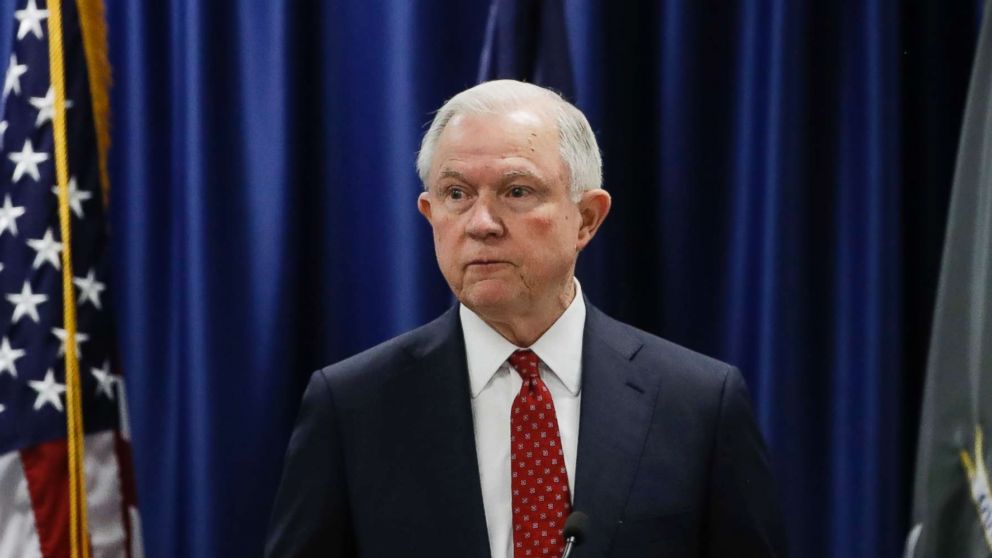Jeff Sessions has no plans to resign amid reports of campaign conversations with Russia: source
— -- Attorney General Jeff Sessions has no plans to resign after a report emerged that he engaged in campaign and policy-related conversations with Russia during the 2016 campaign, and he would only leave his position if President Trump were to fire him, a person familiar with the matter has told ABC News.
The Department of Justice (DOJ) denied Friday evening that Sessions had meetings or discussions with foreign officials "concerning any type of interference" with the 2016 election.
The denial comes in response to a Washington Post report that the Russian ambassador to the U.S. Sergey Kislyak told Russian officials that he and Sessions engaged in campaign and policy-related conversations during the period Sessions served as an adviser to Trump's campaign.
The report, published by the Post on Friday, does not accuse Sessions of discussing interference, as the DOJ release states, but reports that "he discussed campaign-related matters, including policy issues important to Moscow" with Kislyak. The Post cites "current and former U.S. officials" familiar with the intercepted communications of Russian government officials.
There was no discussion regarding Russia's attempts to influence the election, nor was there any discussion of cooperation or collaboration between Trump associates and the Russians, the source says.
In March, responding to an earlier Washington Post article that publicly disclosed his encounters with Kislyak, the attorney general said that he "never met with any Russian officials to discuss issues of the campaign." The DOJ portrayed these meetings as a regular activity for a U.S. senator on the Armed Services Committee.
The DOJ’s statement on Friday, and the refutation that Sessions spoke of "interference," mirrors testimony Sessions gave before the Senate Intelligence Committee in June. In that testimony, he also said that meetings and conversations "with any Russians" or foreign officials were not about "interference with any campaign or election."
Questions of Sessions honesty regarding his interactions with Russia stem from his January confirmation hearing. There he was questioned by Sen. Al Franken, D-Minn., regarding what he would do as the head of the DOJ if he discovered "evidence that anyone affiliated with the Trump campaign communicated with the Russian government" during the campaign.
Sessions did not directly answer the question, instead saying that he wasn't aware of such activities, and that he, personally, never made contact with representatives of the country.
"I didn't have ... communications with the Russians, and I'm unable to comment on it," said Sessions.
Giving misleading information regarding the nature of conversations with Kislyak led to the resignation of Michael Flynn, who stepped down as National Security Adviser in February after denying he spoke with the ambassador. Flynn's stance was repeated publicly by Vice President Mike Pence before the truth became public.
Friday's revelations about the subject of Sessions' discussions with Kislyak come following an interview by the New York Times with Trump Wednesday, in which he admitted regret over nominating Sessions to be attorney general after his recusal from matters related to the election.
Committees in both the House and Senate, as well as a special counsel appointed by Sessions' deputy, are investigating Russian meddling in the election and any potential links to or collusion with the Trump campaign.




